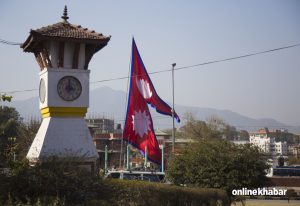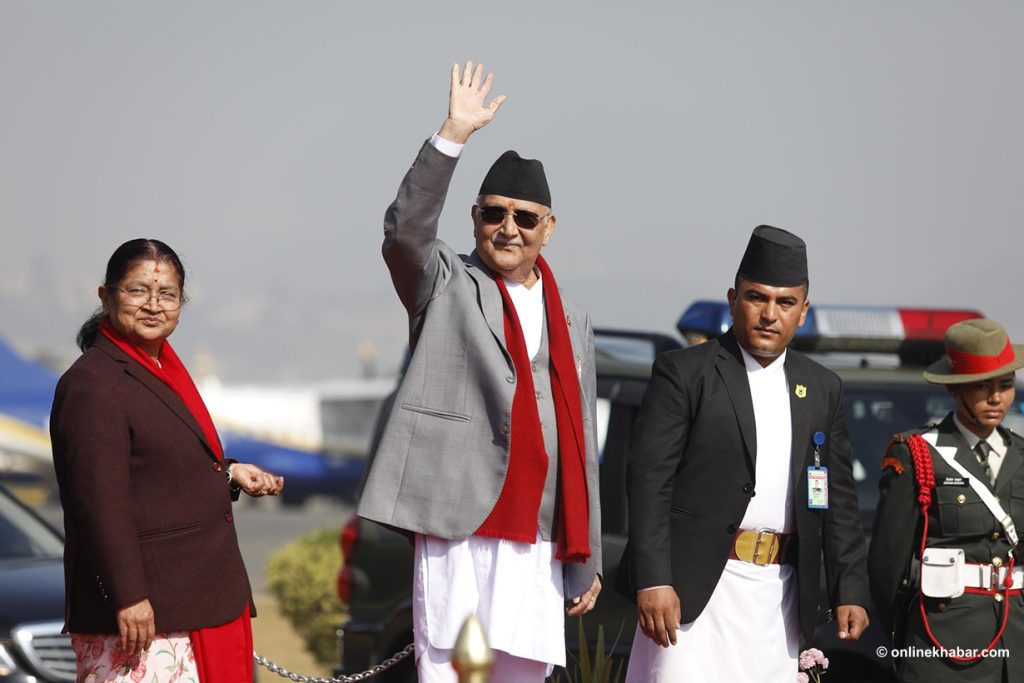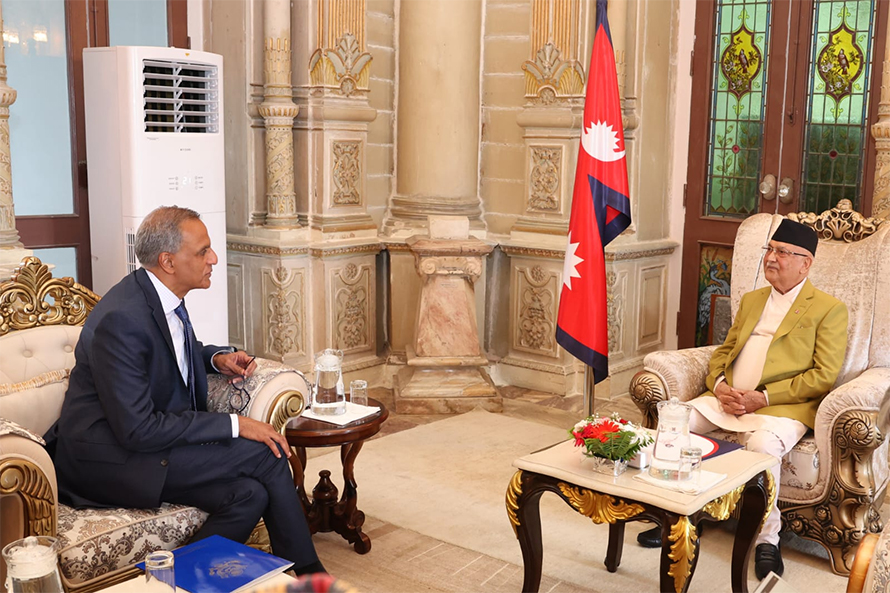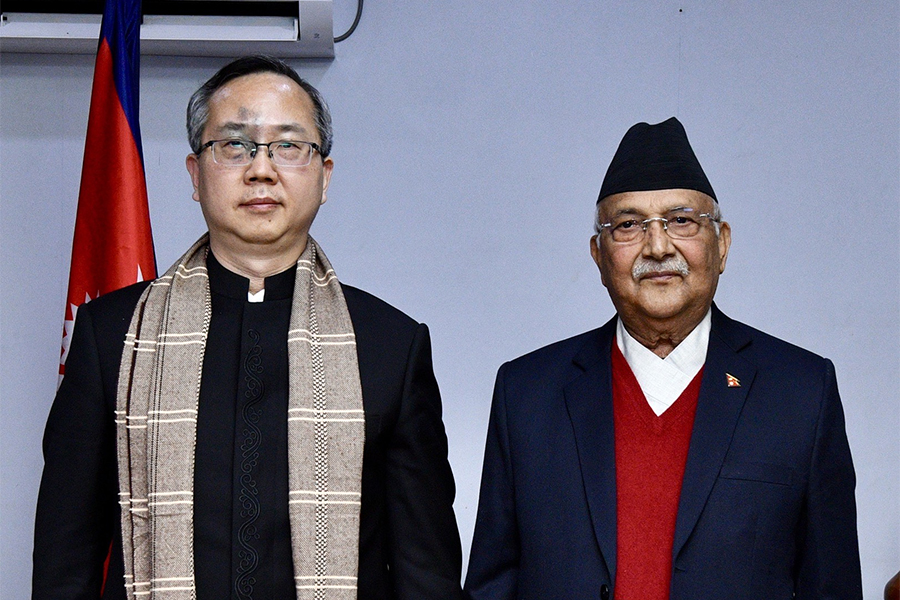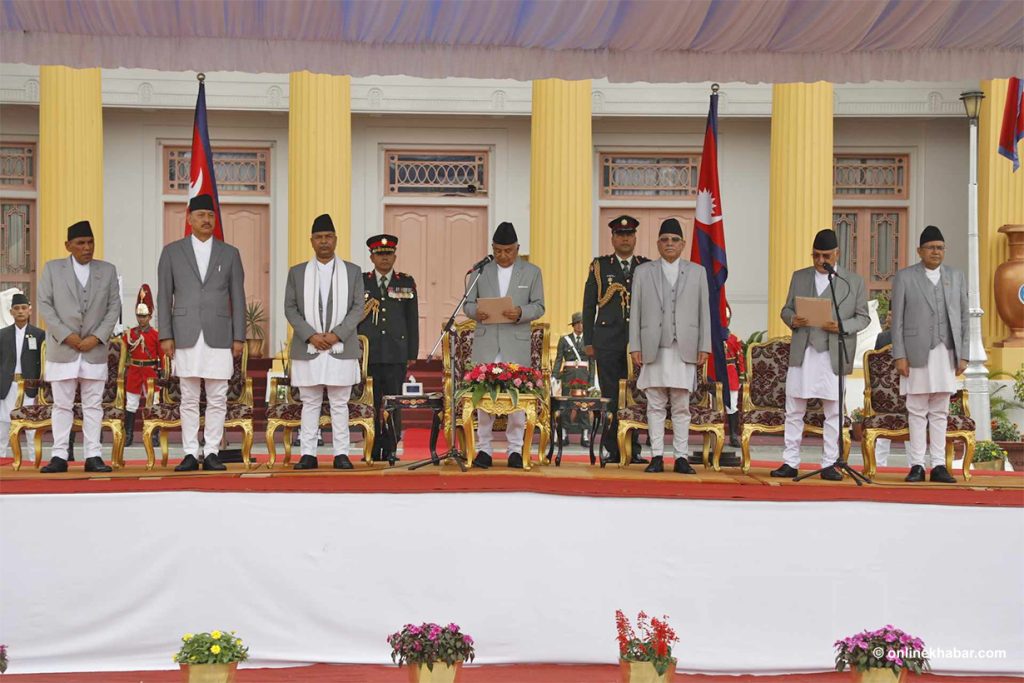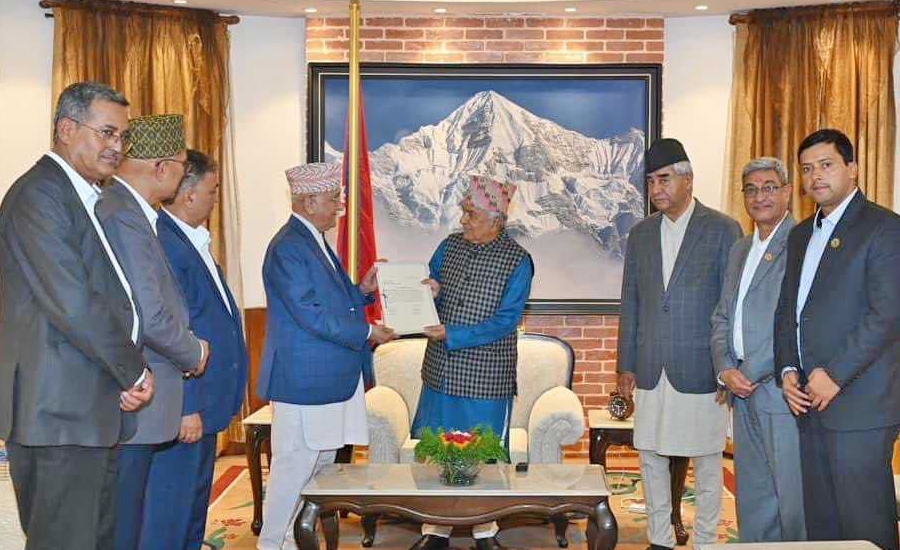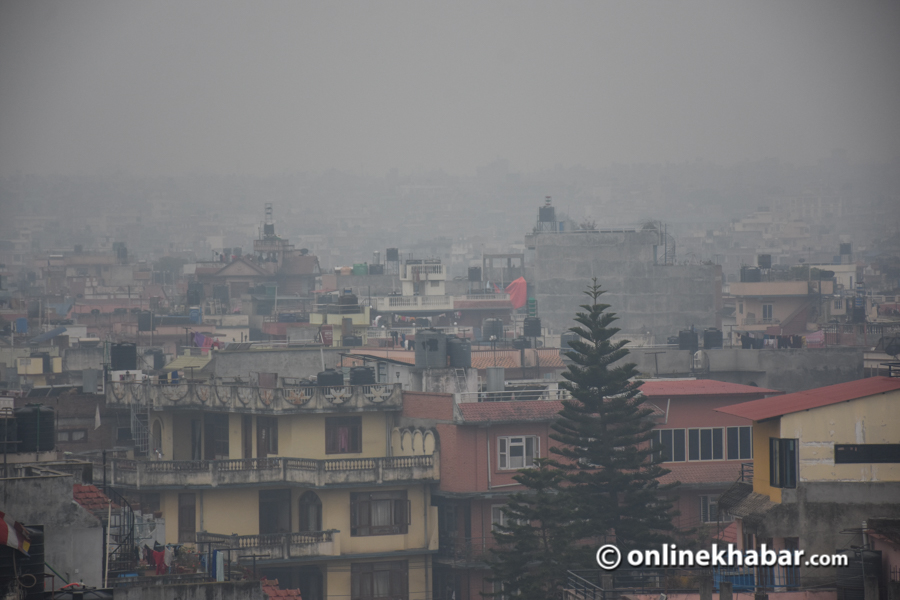
What the Maoists like about KP Oli, also frustrates them. Oli’s unwavering character is frequently lauded by them, yet when it conflicts with their beliefs and principles, they consistently label him as stubborn.
During a conversation with Onlinekhabar, Barshman Pun, the Deputy General Secretary of the Maoist Center, who participated in the Baluwatar meeting between Prime Minister and Maoist Center Chairman Pushpa Kamal Dahal and UML Chairman KP Oli, openly praised Oli. This was before it was agreed that Pun would become the country’s next finance minister.
“The flexibility of Comrade Prachanda (Dahal’s moniker) and the firmness of Comrade Oli should be noted. Prachanda can collaborate with everyone, while Oli can adopt a distinctive stance when necessary,” said Pun during a conversation with Onlinekhabar on March 4. “I used to advise them to ensure that their characters complemented each other. If they are together, it evokes a positive sentiment. Otherwise, there’s a risk that determination might seem like stubbornness, and flexibility might be perceived as instability.”
Leaders from the UML background are more familiar with KP Oli than the Maoists. Bamadev Gautam, for instance, claims that Oli consistently attempts to undermine his opponents using any means necessary. Even if cooperation is offered, Oli attempts to suppress them if it does not align with his interests.
Gautam has been trying to contact Oli as he wants to get back into the UML. KP Oli, however, is not interested and has said the decision should be made by a high-level committee. Gautam, who is awaiting a response, finds himself taken aback by Oli’s sudden change in behaviour.
“He (Oli) has tried to strengthen his position by drawing opposition activists towards him through and attacking his competitions. But this has not proved to be successful,” says Gautam. “Hence, I sensed that he might be inclined towards self-reflection and moving beyond past conflicts. If he lets go of what happened in the past and unifies the communist front once again, he has the potential to leave a lasting legacy as an immortal and esteemed figure in Nepal’s political history.”
It appears that Oli is merely trying to engage leaders like Madhav Kumar Nepal or Bamdev Gautam to make them feel a part of what is going on. But sources say, Oli’s focus right now is on the 2027 election and will do whatever he can to get a majority during it. Aware that circumstances may not unfold as he desires, KP Oli seems to be actively seeking alliances and contemplating a Plan B as a contingency measure prior to the 2027 general elections.
“Things are still cold between us and the Unified Socialists and a unification is off the cards. That said, we do not rule out that before the next election,” said the leader close to KP Oli.
Changing faces

Previously, during conflicts with leaders such as Dahal and Nepal, Oli, who held the position of Prime Minister at the time, declared his intention to engage in an uncompromising battle. His threat to relinquish the Prime Minister’s chair if his demands were not met escalated the dispute within the erstwhile Nepal Communist Party.
KP Oli even went as far as dissolving the parliament on two occasions. Despite past cooperation, his relationship with Dahal soured, and the distance between him and Nepal, who had been an ally for a significant period, widened. This rift ultimately led to the split not only within the Nepal Communist Party but also within the UML in 2021.
Following that, KP Oli continued to throw shade at Dahal, Nepal and other leaders who quit the UML to form the Unified Socialists. Now, the same Oli has been trying to get his long-time ally Nepal on his side.
The sudden transformation in Oli has left competitors both within and outside the UML surprised. Jhalanath Khanal, a senior leader of the United Socialist, likens Oli’s change to the story of Buddha and Angulimala.
“Angulimala, who had cut the fingers of 999 people, changed after his encounter with the Buddha. I feel Oli has also had a transformation like Angulimala had. This can be seen positively,” said Khanal.
KP Oli’s change in tone could be seen when he addressed the House of Representatives last week. Usually, he speaks for hours as he belittles the opposition. This address, however, was limited to 28 minutes as he appeared to be restrained.
No greed or hunger

On March 4, as the country’s political dynamics looked to change, KP Oli did not seem to be worried. As Dahal was reshaping the Council of Ministers, Oli looked on as everyone wanted a slice of the pie. Rabi Lamichhane from the Rastriya Swatantra Party laid claim to the home ministry. Maoists said it wanted the Finance Ministry. Oli, however, did not say much as he was happy to be in the shadow despite being the chair of the largest party in the newly formed coalition.
“Take all the big ministries. I guess UML will be given the Ministry of Water Supply,” he told those present at the meeting in Baluwatar.
According to a Maoist leader who attended the meeting, Oli exhibited no signs of sarcasm; rather, he appeared inclined towards serving as a mediator and adopted a very soft and gentle demeanour.
However, during an interview with Onlinekhabar two months prior, the same Oli was recalling the controversy that arose during the UML-Maoist power alignment in early December 2023.
“Dahal wanted all major ministries. When you are part of a coalition, it doesn’t work like that,” Oli told Onlinekhabar during the interview.
The same Oli is now forming a partnership with Dahal, a significant departure from his previous stance where he did not even attempt to secure major ministries and willingly relinquished them.
According to sources close to Oli, he has intervened in the situation timely to ensure that a robust national unity can be established, aiming to thwart geopolitical pressures.
“He has done this to keep in mind what is right for the country,” said a leader close to Oli. “He wants to do what is best for Nepal and right now it is this.”
Political scientist Krishna Pokharel says Oli wants to build his new personality in Nepali politics. Pokharel argues that Oli is doing this willingly and without outside pressure.
“Dahal was having trouble dealing with the Nepali Congress. That is when Oli turned soft. He himself went to speak to Nepal. It seems Oli is a change man,” said Pokharel.




